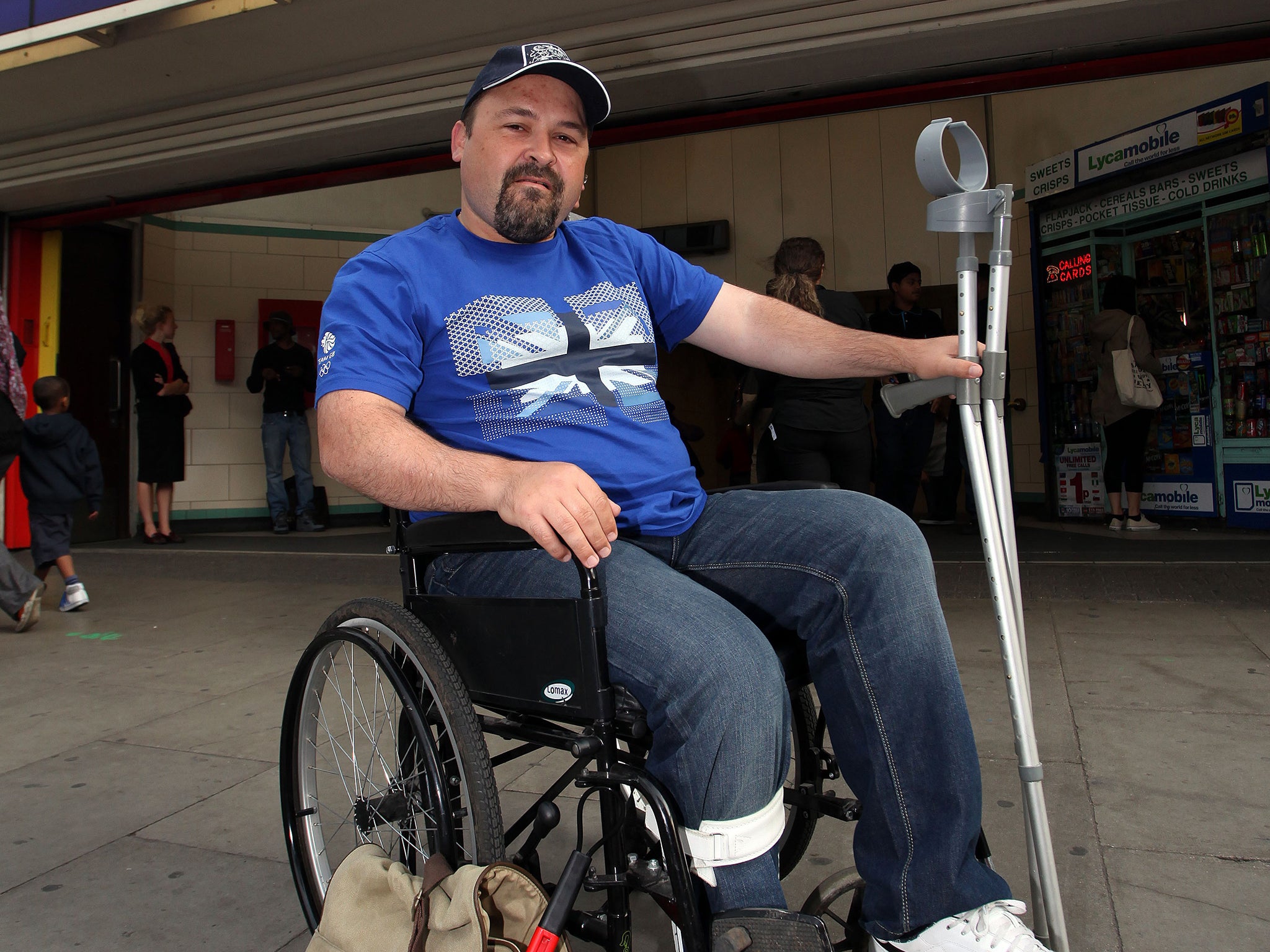Disabled people have a host of extra things to buy, so why are so few businesses selling?
‘The purple pound is there for the taking – it’s not as hard as you think’

Businesses are losing £1.8bn a month by failing to consider the needs of their disabled customers, according to research carried out for a commission investigating financial burdens placed on the disabled.
Some 75 per cent of disabled people and their families say they have left a shop or other business because it failed to meet their needs, according to the Extra Costs Commission, which published its interim report yesterday.
I’m one of those people. Having asked the staff at my local Tesco if it was alright for me to put my shopping into a shoulder bag I was carrying around my neck (I can’t easily manage a trolley or a basket and I didn’t want them mistaking me for a shoplifter), they at first offered me a mobility scooter.
Then they decided I couldn’t have a mobility scooter because I’d never used one before and I might hit someone.
After a conference from which I was excluded, and during which I was left hanging around in some discomfort, the duty manager was finally summoned. He said that, yes, I could use my shoulder bag.
But by then I’d had enough. As a result, what probably now amounts to several thousand pounds-worth of custom has gone the way of Sainsbury’s.
Partly because of that experience, I readily accepted an offer to sit on the Commission. It was set up by the charity Scope to investigate ways of addressing the extra costs faced by Britain’s growing number of disabled citizens.
Growing because Britain has an ageing population and disability is part of the process of getting older for many.
My switch to Sainsbury’s brings up another point about the “purple pound”, the money people with disabilities have to spend: it’s remarkably sticky.
With thousands of businesses failing us, when we or our families find one that does look after us we’re apt to go back again and again.
That’s certainly been the experience of my family, after I reluctantly joined the community thanks to the efforts of a lorry to squash my bicycle (and me) flat. Well, it helped me lose weight at any rate.
The costs we racked up in the early days were incredible. Taxis, for a start. I’ve also been through a hundred-weight of socks in an attempt to find pairs with enough give in them to accommodate a foot that can easily go up a shoe size or two in a day through swelling, and which doesn’t exacerbate the neuropathic pain I feel to a greater or less extent during the day. Pain that leaves my foot feeling as if it’s being scrubbed with wire wool.
We have found some specialist pairs sans elastic. But they’re pricey. And they don’t always look good.
Specialist products cost more. A wheelchair basketball-playing friend once opined that if you tack “disabled” on to a product you tack a multiple on to the price.
Moreover, state support for disabled people is either being withdrawn or made much, much harder to access. Despite the characterisation of so many of us as either scroungers or saints we are, by and large, ordinary people who are more than willing to help ourselves.
The increasing strain on NHS resources
Show all 4Hence the recommendation for an online review site for disability-related products, so that disabled people can tell each other about where they’ve found the best-value deals or good customer service. Or (best of all) both.
We’re looking at switching-schemes and buyers clubs to drive down the costs of things disabled people buy: a Nectar-type affiliate scheme to help disabled people get good deals and help businesses reach us.
One of the most rewarding parts of sitting on the Commission is working with, and listening to the ideas of, the business people on it. They’ve had their eyes opened too.
What we all agree on is this: the mobilised purple pound could be a powerful force. And, businesses: it’s there for the taking. It might not be as hard as you think.
Subscribe to Independent Premium to bookmark this article
Want to bookmark your favourite articles and stories to read or reference later? Start your Independent Premium subscription today.

Join our commenting forum
Join thought-provoking conversations, follow other Independent readers and see their replies